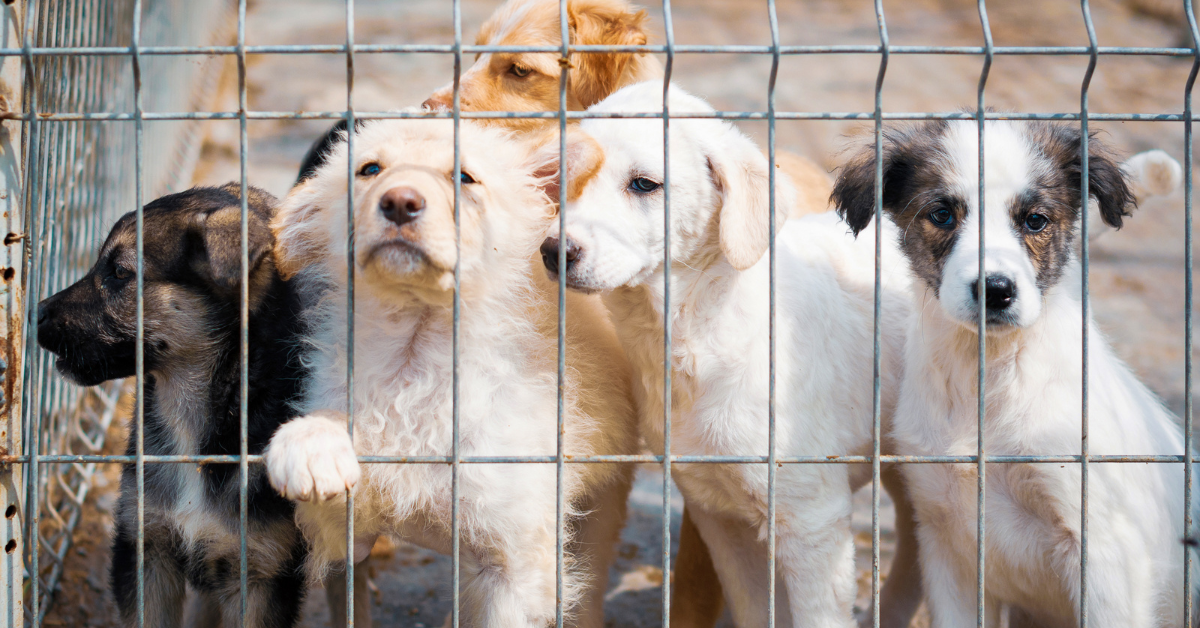We have a cheer for NYC’s efforts to cripple the exploitive pet breeding industry.
Far too often, this scene unfolds across New York City: Someone in a park or sidewalk is holding a box with a litter of puppies or kittens, advertising them for sale right there on the street. These litters are usually the result of “backyard breeding” operations—people who don’t even have a permit to sell animals.
The New York City Council recently passed a bill banning the sale of dogs and cats in pet shops as well as residential buildings, bodegas and other unlicensed facilities. Intended to curb the use of large-scale commercial puppy mills and “backyard breeders,” New Yorkers will instead be directed to rescue organizations, as well as licensed breeders.
If Mayor Eric Adams signs the legislation into law, it will go into effect on Dec. 15.
The bill aligns NYC laws with a state law that passed in 2022 banning the sale of cats, dogs and rabbits in pet stores, also effective Dec. 15. New York is one of the puppy mill industry’s largest markets. The state law also bans breeders from selling more than nine animals a year.
The NYC bill passed with a comfortable margin of support, passing on a 40-5 vote. Not surprising—New York shelters and shelters across the country are facing a euthanasia crisis, so curtailing the for-profit pet breeding industry makes sense.
Puppy mills are cruel, large-scale commercial breeding options that prioritize profit over animal welfare. New York Attorney General Letitia James stated that animals from puppy mills often “suffer from serious medical issues and leave families heartbroken over their sick pet and with a heavy bill to pay.”
It’s not just families who puppy mills lend a heavy burden to bear—these facilities provide a completely inadequate environment for animals. Dogs are often confined to small crates and deprived of socialization, veterinary care and nutrition. While puppy mills exist everywhere, they’re most concentrated in the Midwest, meaning a lot of these animals up-for-sale in New York originate from hundreds of miles away. That means animals desperate for a home languishing in New York shelters get overlooked.
This tangled web of pet adoption is sometimes known as the ‘Puppy Mill Pipeline,’ and is something that FoA has been vigorously educating its members about in recent months.
People who violate the newly imposed ban will face penalties of up to $1,000 per offense. The law also imposes civil penalties of $500 per animal, per day of violations. Suspected violations can be reported using this link: https://ag.ny.gov/file-complaint. California enacted a similar law in 2017, becoming the first state to ban such sales. And in 2020, Maryland banned the sale of cats and dogs in pet stores, triggering pushback from shop owners and breeders who challenged the measure in court. A year later Illinois barred pet shops from selling commercially raised puppies and kittens.
“As someone who has only ever had shelter and rescue pets, I have experienced their unconditional love and unwavering loyalty firsthand,” said Councilmember Justin Brannan, the bill’s sponsor, in a statement to the Gothamist. “There is absolutely no reason to allow a for-profit industry that abuses animals and treats them like commodities to continue to operate when our public shelter system is full of loving animals waiting to save your life.”
We couldn’t agree more.

